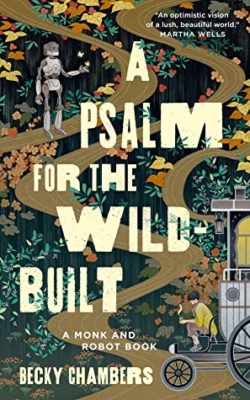

After feeling like a failure in their first outing as a tea monk, they strive to become the best tea monk possible. In our story’s present, Sibling Dex is a monk who decides to become a traveling tea monk because as much as they love their life in the city, they want an undefinable more. It’s sounds like a pretty conflict resolution to me. The robots and the humans agreed to go their separate ways and divided up the continent so that they could live unbothered by the other. One day the robots decided they didn’t want to work in factories anymore, or have anything to do with human. Some hundreds of years in the past, there were factories and in those factories, robots produced goods for human consumption. On this inhabited moon, relation to our Earth unclear, humans have built a society that is low tech and eco-friendly, but still has devices like tablets or smartphones. I’ve listened to A Psalm for the Wild-Built three times now, and I keep being surprised that it’s a hair over 4 hours long.

There are some novellas that are like the Tardis, so much bigger than you think they could possibly be.

I’m also not surprised, because my love for it overwhelms me into a flailing state of indecipherable babbling and crying. I discovered to my horror while reading an arc for Monk and Robot #2, A Prayer for the Crown-Shy, that I never finished my review of A Psalm for the the Wild Built.


 0 kommentar(er)
0 kommentar(er)
